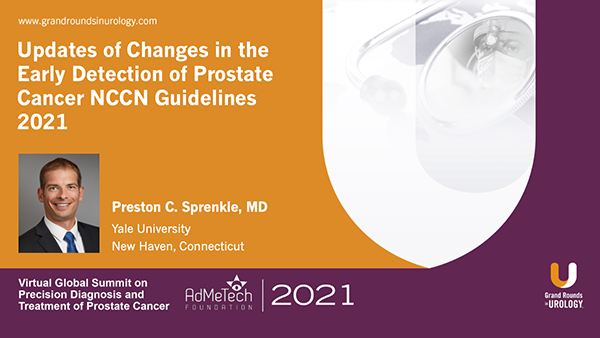OPTIMUM Trial – Current and Emerging Evidence Supporting 29MHz High- Precision, Real-Time Micro-Ultrasound
Preston C. Sprenkle, MD, discusses the OPTIMUM trial examining micro-ultrasound, MRI fusion, and the combination of these in prostate cancer diagnosis.
Read More

